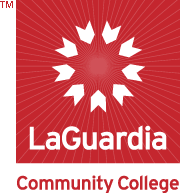Document Type
Assignment
Publication Date
7-2018
Abstract
This assignment was developed in the context of CTL sponsored Learning Matters Mini-grant awarded to the English Department. The primary purpose was to assist full-time and part-time faculty in the Department with revising ENG 102 course materials to align with the Inquiry and Problem Solving (IPS) Core Competency and Written ability. This goal was achieved through several workshops, a programmatic benchmark reading, and a departmental review process that prepared assignments to be submitted for the CTL Assignment Library. The assignment underwent a two-phase review process. In the first round, the grant leader, Dr. Anita Baksh, suggested feedback for revision. Then, faculty members revised their assignments and submitted them to Dr. Jacqueline Jones, Director of Composition II, for final review. After receiving a second set of feedback from Dr. Jones, faculty modified assignments again.
ENG 102 is fundamentally a composition course rather than an introduction to literature course or a literary studies course. It is part of the required core for most LaGuardia students, which students usually take in their second semester, after completing ENG 101: Composition I, a pre-requisite for the course. Thinking about the dimensions of the IPS rubric in relation to the ENG 102 research paper allows faculty to better understand this idea, and to create assignments that lead students to produce work that demonstrate aspects of the competency and also fulfill the learning outcomes of the class. Assignments that meet the standards of the IPS competency also help students see how they can transfer skills practiced in ENG 102 to other writing and problem solving situations in academic and real world settings. Mini-grant activities helped faculty, especially part-time instructors, better grasp these important concepts.
This high stakes assignment was designed to take four weeks, allowing approximately one week for each stage of the process and was counted as 25% of the final grade. Upon reflection, I think that puts too much weight on a genre that many students are trying for the first time, so in the future, I would reduce its weight to 15-20%. Identifying and framing a question is a fundamental challenge for academic writers and journalists, which I felt I had overlooked in the past by giving students questions to write about. For this assignment, I wanted to give students almost a full week to work on this skill and to focus on an issue that might be more meaningful to them than the one I framed for them. However, even with support, this proved very difficult, so in the future, I would ask students to focus on fewer and more specific themes (different kinds of jealousy and their causes, male bonds, insecurity, blinding anger) and brainstorm possible questions together. I also would consider providing critical essays for students, because reading and finding pertinent, accessible articles in Gale Literary Resources absorbs a significant amount of time, which students might spend more productively identifying a critic’s argument, analyzing what it is based on, and deciding whether they agree or not, and on what basis. It might be useful to have students analyze critical essays in pairs or trios as well.
LaGuardia’s Core Competencies and Communication Abilities
Learning Objectives
- A staged literary argument that requires students to submit work at each phase of the writing process, this assignment asks students to review one of the primary course objectives of Composition II, which is to “demonstrate an understanding of writing as a process that involves prewriting, drafting, revising, editing, and proofreading,” as our department course description states.
- It also asks students to develop and support a thesis about one theme or element of a play based on their close reading of the text and selected literary criticism, which addresses the course objective of teaching students to ”interpret and write critically about drama . . . while applying techniques of close reading.”
- In addition, this assignment reinforces the objective of supporting a thesis with a well-reasoned argument and textual evidence, by having students analyze and summarize how three literary scholars construct professional arguments before explaining why they agree or disagree with these critics in their own essays. This, of course, also addresses the ENG102 goal of having students demonstrate an understanding of research methods, and of teaching them to “evaluate, synthesize, and cite primary and secondary sources, while writing critically and analytically about literature.”
- In writing a proposal, gathering and analyzing literary criticism, and developing an argument, students also grapple with the key dimensions of Inquiry and Problem Solving as suggested in the rubric that LaGCC uses. In particular, they work on identifying and addressing a question that matters to them -- the first and often most challenging IPS objective -- by spending almost a week developing their own questions about a play and doing preliminary research about it. They must then draw conclusion about the validity of their thesis and discuss the implications of important ideas in the play in terms of their own lives.
- Asked to draft and revise a well-organized and fully-developed essay and to provide thoughtful feedback on a classmate’s essay, students also develop the key dimensions of Written Communication, working toward developing keener awareness and mastery of content development and organization; the purpose, audience, and genre of the essay that they are writing; and control of language, syntax, punctuation, and grammar.
Creative Commons License

This work is licensed under a Creative Commons Attribution-Noncommercial-Share Alike 4.0 License.


Comments
This resource is part of the Learning Matters Assignment Library.